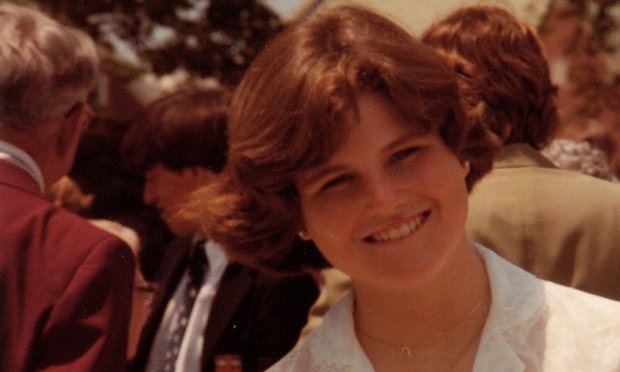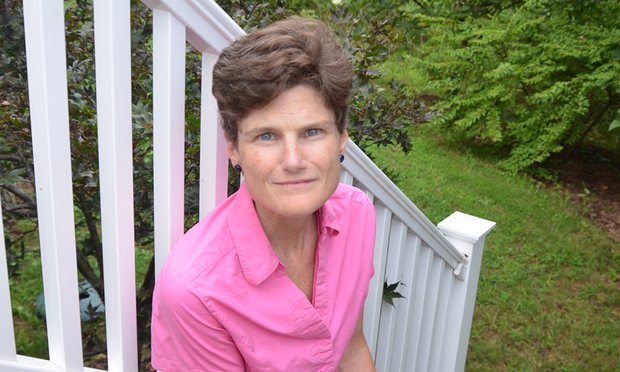"I Thought I Was the Only One': Survivor of Elite Prep School Sexual Abuse Speaks out
By Joanna Walters
Anne Scott has negotiated with Burmese generals, government ministers, Israeli military chiefs and fighters in the Gaza Strip, but this was her toughest battle yet. “For about four months I was having full-on 2am panic attacks,” she said. She was referring to a time earlier this year when she was negotiating with her illustrious New England boarding school until they agreed to a settlement with up to 30 men and women, herself included, who were subjected to rape and sexual abuse by staff as teens. On Wednesday, the elite St George’s School in Middletown, Rhode Island, which was founded in 1896 and has taught Astors, Vanderbilts and a Bush, among others, issued a statement in conjunction with Scott and her lawyers in which the school agreed to pay compensation to victims. It had previously apologized and pledged to learn from “what happened”, after Scott broke a 25-year silence to go public last December. On Thursday, Scott spoke about her experience and about the breakthrough for victims of sex abuse who are finally being heard in a long-skeptical America, in her first in-person interview since the settlement was announced. Sitting in the living room of her comfortable house in Crozet, a dot on the map 12 miles west of Charlottesville, Virginia, at the base of the Blue Ridge mountains, Scott, 53, said she had been determined to succeed in talks with St George’s not so much for herself, but because she was now representing all of the survivors of abuse at the school. She believes more will come forward among those who have so far complained of abuse dating from the 70s into the early 2000s, with senior staff accused of covering it up. Scott runs a community charity foundation in Charlottesville, after spending several decades leading global health projects focusing on HIV, maternal health and nutrition across Asia, the Middle East and Africa – a lifestyle of wandering rooted in her nightmare experience at St George’s, she said. When Scott went public in December last year in an interview with the Boston Globe: “I thought I was the only one” who had been raped at the school, she said. But in what is becoming a familiar pattern, from the Bill Cosby case to the Roger Ailes scandal, other accusers quickly emerged after she spoke out. In the case of St George’s, not everyone was happy about the “can of worms” Scott had opened. “One said to me: ‘I had buried all that deeply inside myself in a box, I didn’t want to bring it out again.’ You know, maybe they are finally in a marriage that works, or something,” she said.
Scott has been through “several” marriages over the years, but described herself as “failing around trust and intimacy” and is resolutely single – and a devoted mother of two sons, aged 14 and 16, whose photographs were proudly displayed on her bookshelf. Advertisement So she was acutely conscious of what was at stake, having dragged the school into the limelight as one of the most egregious examples in a litany of scandals recently exposed involving prestigious private schools in New England. Scott was 14 when she entered St George’s in September 1977, not long after the school went co-ed. She turned 15 two months later, was a keen sportswoman and apparently caught the eye of the athletics trainer, Al Gibbs, then 65. He began what she described as a lengthy and careful grooming process that escalated into repeated rape, accompanied by physical intimidation and threats of getting into severe trouble if she told anyone. “He had a room inside the boys locker area. It’s etched in my head that he would put down the blinds, lock the door and you were not going anywhere. He was an ex-boxer. I was a sheltered girl, pre-sexual even, had never thought about things like that. And if you are a person who trusts authority figures and are vaguely trained to do what they tell you to do …” Her voiced trailed off and she gripped and un-gripped her fingers together several times, unconsciously. Getting back in touch now with old school peers and some staff, they have told her how the changes in her from when she arrived compared with after the abuse began was like night and day. “People said that before, I was a bubbly, outgoing person. I was unfiltered, life wasn’t complicated.” Can she remember that time? She stares off, says, uncertainly: “Yeah?” Then adds: “That was before the curtain came down. I lost my soul when I was raped.” She managed to keep her grades up, and later gained a degree and a doctorate at the University of Pennsylvania, but was “pretty destroyed” as a person. After graduating from St George’s in the early 80s, she moved back in with her parents just outside Wilmington, Delaware, suffering from eating disorders, severe depression and dissociative disorder. There were long periods when she just stopped talking. Concerned that her life was in danger, her parents and therapists took her to a hospital and she ended up doing stints in several secure psychiatric institutions. “I was often heavily drugged, with very, very heavy anti-depression and anti-anxiety drugs. It was true ‘loony bin’. I was seeing people strapped to chairs in the hallways, people wrapped in cold, wet sheets overnight, people coming back from electric shock treatment unable to move their limbs properly, anorexics screaming while being force fed. One person hanged themselves with a phone cord while I was in there,” she said. She learned to empathize and communicate with severely traumatized people whose backgrounds were completely different from her “Waspy privilege”, as she put it. She eventually signed herself out of treatment and stopped therapy. Scott’s parents hired a keen young lawyer, Eric MacLeish, to represent her in a lawsuit against the school. But the school and its lawyers put up such a vicious counter-attack that she dropped the suit in 1989 under threat that she would be named against her will, smeared as a liar and her parents and neighbors would be deposed. “I didn’t care about myself, but when they were going to go after my family it tore me in two,” she said. MacLeish didn’t want her to drop the suit and was haunted by her case for years. He famously went on to represent many victims of sexual abuse by Catholic priests in the Boston Archdiocese and by chance reunited with Scott in 2014, eventually representing her, and subsequently, other complainants in the belated campaign for redress from St George’s. After dropping the suit at 27, when she had to agree to a gag clause that was only recently removed, she hit the road. She found her escape, culturally, physically and psychologically, in traveling the developing world, working for non-governmental organizations, and on UN and government-sponsored or administered health projects. And her passion became seeking justice for the underdog, whether it was mothers trying to give birth under mortar fire in Gaza, girls forced into prostitution and child marriage in India, those in need of food, education and medicine in Zimbabwe and Indonesia, or prisoners with Aids in Myanmar. At one point she spent 10 months persistently negotiating with senior Israeli military officials until they would allow a 10-ton boiler on the back of a truck into the Gaza Strip so a Palestinian hospital could launder its bedclothes, constantly stained in blood from victims of flare-ups in the entrenched sectarian conflict. And she found herself in Yangon while Myanmar was still under martial law, trying to persuade a government minister-cum-army general to let her team into the prisons, when even saying much about HIV/Aids in that society was taboo. Many of the diplomatic skills she learned in building bridges between bitterly opposed, mistrusting sides have helped in what she described as “truth, then reconciliation” with St George’s, she said. Now, Scott says she believes the shift in attitude at St George’s is part of a wider change unfolding in society. “There is a huge amount of ignorance, fear, awkwardness and embarrassment in society around sexual abuse and that needs to change – and is changing,” she said. “As more people speak up, others are emboldened and you get a breakthrough against the powers that have kept you silent. People are less afraid to use their identity now, or they have the choice to use ‘Jane Doe’. In the big picture, success is people being able to talk about it, whether it’s shouting your name from the rooftops straight away or, 25 years later, telling your spouse,” she said. She pointed to the Roger Ailes case as an example. “First you have a brave person to put their head above the parapet, then it got legs because more people came forward [with allegations] and he could not swat or bully it away, and the leader is toppled. That’s how change happens,” she said. The reaction by the Donald Trump campaign when asked about sexual harassment issues was a classic example of ignorance, she said. “Those comments are a war on womanhood,” she added, of Trump’s remarks, amounting to advice that sexually harassed women should simply switch jobs or careers, and his son Eric’s opinion that a “strong” woman simply would not stand for such bullying. “It’s almost inhuman. No real thought behind it. His message is – we are secure, no one is going to touch us, it’s down to women to change their behavior,” she said. Scott loves sailing, horses and kayaking. She still suffers from post-traumatic stress disorder, but speaking out and winning validation for herself and other victims has released “gales of rage” and helped her reconnect to more positive emotions and senses. She recently wrote in a poem that she has been able to “stand my ground for the first time ever”. A statement with which certain Burmese and Israeli military chiefs might disagree.
|
.
Any original material on these pages is copyright © BishopAccountability.org 2004. Reproduce freely with attribution.

